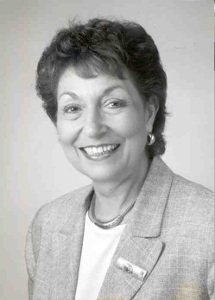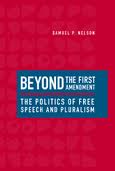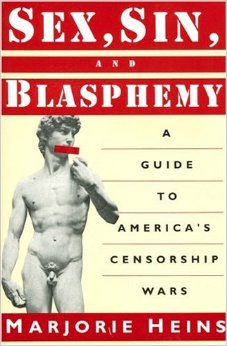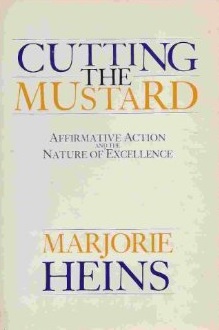
The American Civil Liberties Union (ACLU) is an American nonprofit civil rights organization founded in 1920. ACLU affiliates are active in all 50 states, Washington, D.C., and Puerto Rico. The budget of the ACLU in 2024 was $383 million.
Reno v. American Civil Liberties Union, 521 U.S. 844 (1997), was a landmark decision of the Supreme Court of the United States, unanimously ruling that anti-indecency provisions of the 1996 Communications Decency Act violated the First Amendment's guarantee of freedom of speech. This was the first major Supreme Court ruling on the regulation of materials distributed via the Internet.
The Hugh M. Hefner First Amendment Award is an award created in honor of Playboy founder Hugh Hefner. The Hugh M. Hefner First Amendment Awards were established by Christie Hefner in 1979 to honor individuals who have made significant contributions in the vital effort to protect and enhance First Amendment rights for Americans. Since the inception of the awards, more than 100 individuals including high school students, lawyers, librarians, journalists and educators have been honored.

Nadine Strossen is an American legal scholar and civil liberties activist who served as the president of the American Civil Liberties Union (ACLU) from 1991 to 2008. A liberal feminist, she was the first woman to lead the ACLU. A professor at New York Law School, Strossen is a member of the Council on Foreign Relations and other professional organizations.

Judith Fingeret Krug was an American librarian, freedom of speech proponent, and critic of censorship. Krug became director of the Office for Intellectual Freedom at the American Library Association in 1967. In 1969, she joined the Freedom to Read Foundation as its executive director. Krug co-founded Banned Books Week in 1982.

Norman Dorsen was the Frederick I. and Grace A. Stokes Professor of Law and Co-Director of the Arthur Garfield Hays Civil Liberties Program at the New York University School of Law, where he specialized in Constitutional Law, Civil Liberties, and Comparative Constitutional Law. Previously, he was president of the American Civil Liberties Union, 1976–1991. He was also president of the Society of American Law Teachers, 1972–1973, and president of the U.S. Association of Constitutional Law in 2000.
Wendy Kaminer is an American lawyer and writer. She has written several books on contemporary social issues, including A Fearful Freedom: Women's Flight From Equality, about the conflict between egalitarian and protectionist feminism; I'm Dysfunctional, You're Dysfunctional: The Recovery Movement and Other Self-Help Fashions, about the self-help movement; and Sleeping with Extra-Terrestrials: The Rise of Irrationalism and Perils of Piety.

Gregory Christopher Lukianoff is an American lawyer, journalist, author and activist who serves as the president of the Foundation for Individual Rights and Expression (FIRE). He previously served as FIRE's first director of legal and public advocacy until he was appointed president in 2006.

David D. Cole is the National Legal Director of the American Civil Liberties Union (ACLU). Before joining the ACLU in July 2016, Cole was the Hon. George J. Mitchell Professor in Law and Public Policy at the Georgetown University Law Center from March 2014 through December 2016. He has published in various legal fields including constitutional law, national security, criminal justice, civil rights, and law and literature. Cole has litigated several significant First Amendment cases in the Supreme Court of the United States, as well a number of influential cases concerning civil rights and national security. He is also a legal correspondent to several mainstream media outlets and publications.
Robert Marchant O'Neil was an American lawyer and educator. A specialist in constitutional law, he served as president of the University of Virginia (1985-1990) and created the Thomas Jefferson Center for the Protection of Free Expression, whose director he became (1990-2010). During these years, O'Neil remained associated with the university's law school, where he taught courses in the First Amendment and the Arts, Speech and Press, Church and State, and Free Speech in Cyberspace.
The Free Expression Policy Project (FEPP) is an organization devoted to assisting researchers with assembling information related to freedom of speech, media democracy, and copyright, and advocating for these issues. Civil liberties lawyer Marjorie Heins founded the nonprofit organization in 2000. Based in Manhattan, New York, it was initially associated with the National Coalition Against Censorship, and subsequently operated as part of the Democracy Program of the Brennan Center for Justice at New York University Law School.

Beyond the First Amendment: The Politics of Free Speech and Pluralism is a book about freedom of speech and the First Amendment to the United States Constitution, written by author Samuel Peter Nelson. It was published by Johns Hopkins University Press in 2005. In it, Nelson discusses how the more general notion of free speech differs from that specifically applied to the First Amendment in American law.
National Endowment for the Arts v. Finley, 524 U.S. 569 (1998), was a United States Supreme Court case in which the Court ruled that the National Foundation on the Arts and Humanities Act, as amended in 1990,, was facially valid, as it neither inherently interfered with First Amendment rights nor violated constitutional vagueness principles. The act in question required the chairperson of the National Endowment for the Arts (NEA) to ensure that "artistic excellence and artistic merit are the criteria by which [grant] applications are judged, taking into consideration general standards of decency and respect for the diverse beliefs and values of the American public". Justice Sandra Day O'Connor delivered the opinion of the Court.

Girls Lean Back Everywhere: The Law of Obscenity and the Assault on Genius is a book written by American lawyer, Edward de Grazia. It is a book chronicling the history of literary censorship in the United States and elsewhere.

American Civil Liberties Union v. Clapper, 785 F.3d 787, was a lawsuit by the American Civil Liberties Union (ACLU) and its affiliate, the New York Civil Liberties Union, against the United States federal government as represented by then-Director of National Intelligence James Clapper. The ACLU challenged the legality and constitutionality of the National Security Agency's (NSA) bulk phone metadata collection program.

Not in Front of the Children: "Indecency," Censorship, and the Innocence of Youth is a non-fiction book by attorney and civil libertarian, Marjorie Heins about freedom of speech and the relationship between censorship and the "think of the children" argument. The book presents a chronological history of censorship from Ancient Greece, Ancient Rome and the Middle Ages to the present. It discusses notable censored works, including Ulysses by James Joyce, Lady Chatterley's Lover by D. H. Lawrence and the seven dirty words monologue by comedian George Carlin. Heins discusses censorship aimed at youth in the United States through legislation including the Children's Internet Protection Act and the Communications Decency Act.

Sex, Sin, and Blasphemy: A Guide to America's Censorship Wars is a non-fiction book by lawyer and civil libertarian Marjorie Heins that is about freedom of speech and the censorship of works of art in the early 1990s by the U.S. government. The book was published in 1993 by The New Press. Heins provides an overview of the history of censorship, including the 1873 Comstock laws, and then moves on to more topical case studies of attempts at suppression of free expression.

Cutting the Mustard: Affirmative Action and the Nature of Excellence is a 1987 non-fiction book by civil libertarian and United States lawyer Marjorie Heins about the Equal Protection Clause of the Fourteenth Amendment to the United States Constitution and its relationship to affirmative action and sexism. Heins discusses the case of Nancy Richardson, dean of student affairs at the Boston University School of Theology, who was removed from her position by the school's administration in 1981. Heins represented Richardson in an unsuccessful lawsuit against Boston University for wrongful termination and sexism. Cutting the Mustard recounts the case, interspersing reflections on the lawsuit with a discussion of relevant case law, decisions by the Supreme Court of the United States related to affirmative action and multiple criticisms of contradictory court decisions in affirmative-action cases.
Thomas I. Emerson (1907–1991) was a 20th-century American attorney and professor of law. He is known as a "major architect of civil liberties law," "arguably the foremost First Amendment scholar of his generation," and "pillar of the Bill of Rights."
Deborah N. Archer is an American civil rights lawyer and law professor. She is Margaret B. Hoppin Professor of Clinical Law at New York University School of Law. She also directs and founded the Community Equity Initiative at NYU Law and directs the Law School's Civil Rights Clinic. In January 2021, she was elected president of the American Civil Liberties Union, becoming the first African American to hold the position in the organization’s history.












